The Library is currently trialing Brill’s Cuban Culture and Cultural Relations, Part IV: Music until October 14, 2024. The database can be accessed here.
This primary source collection documents the history of music in Latin America and the Caribbean, with a special focus on Revolutionary Cuba. It explores the role of music in society and covers festivals, performances, trends, and persons (musicians, composers, producers, etc.). The collection is scanned from the so-called “vertical archive” at Casa de las Américas in Havana, Cuba (source: Brill)
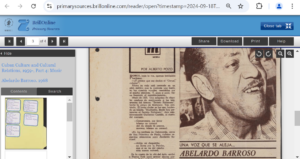
Localidad: Cuba
Resumen: Entrevista al sonero cubano. Publicada en Bohemia.
Coleccion: Colección Archivo Vertical
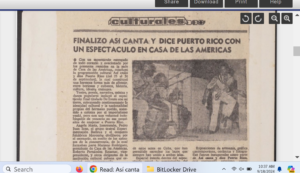
Please use ez proxy or VPN if you are accessing the resource from an off-campus location. Please provide your feedback to your Librarian of the Caribbean and Latin American Studies at Lpendse (at) berkeley (dot) edu
Please access the resource here.
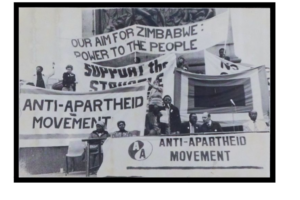 The Library now has access to the online archive
The Library now has access to the online archive 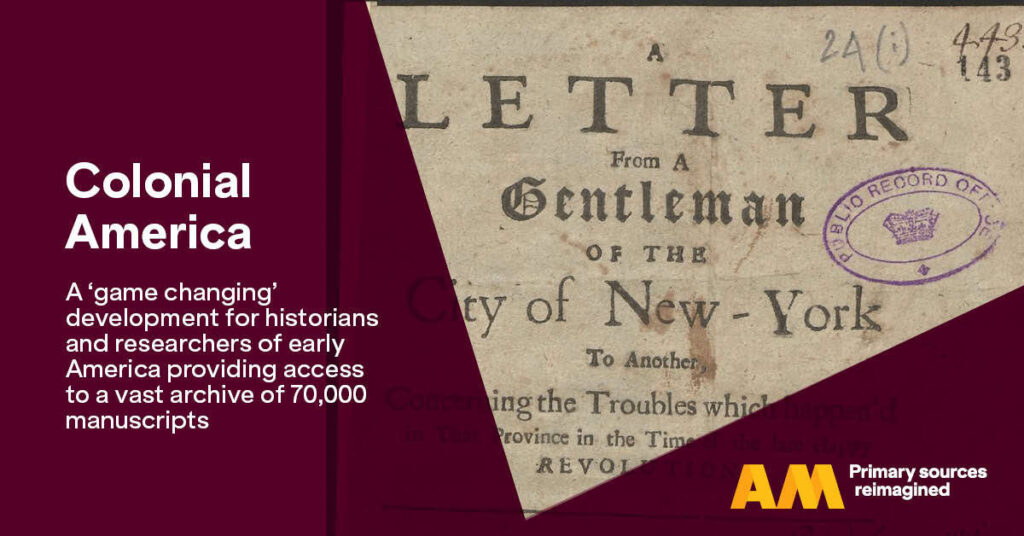
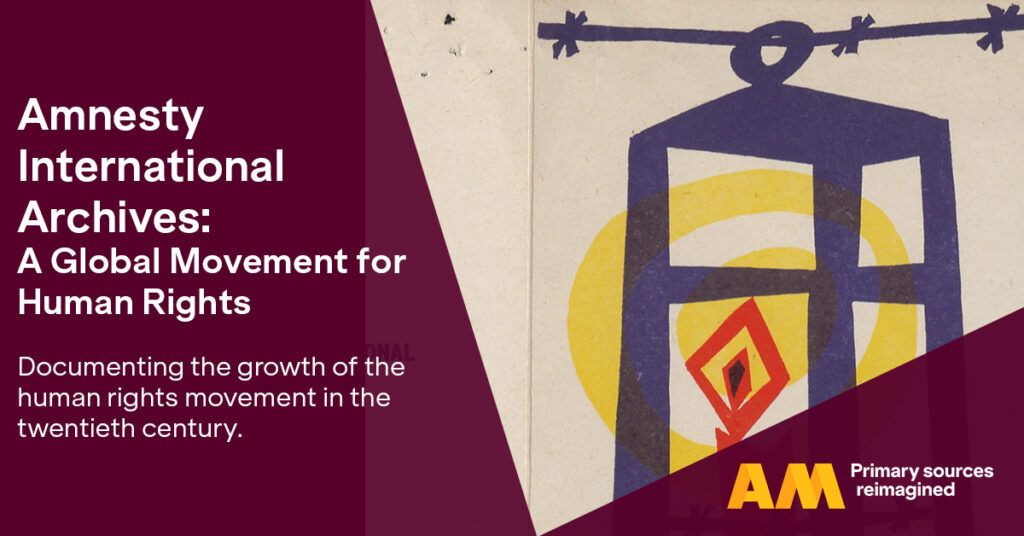
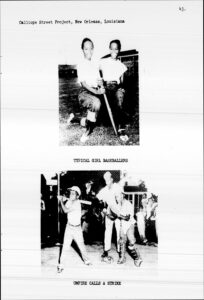

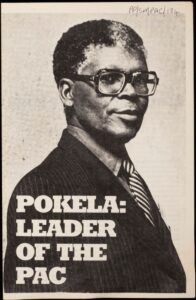 The Gale digital archive
The Gale digital archive